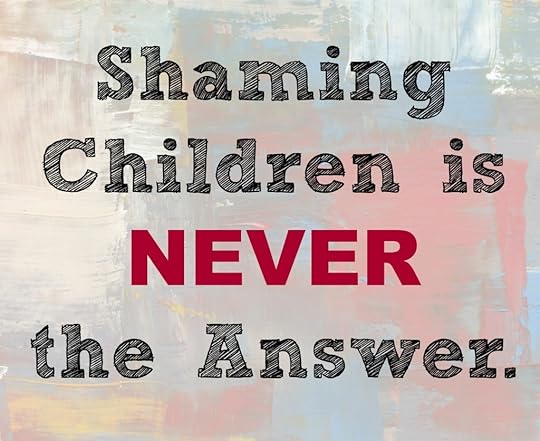Would You Publicly Shame Your Child as Punishment?
THE ISSUE
A father discovered that his 10-year-old daughter, who was 5 feet, 9 inches tall, had secret accounts on social media and had been dating behind his back, all against his rules. His response was to put her in a pink T-shirt that stated her age and grade in school, plus hair curlers and a backpack, and post several pictures of her on Facebook.
ROMA’S TAKE
Clearly, this ten-year-old child has self-esteem issues about her height and appearance, and these issues are far from easy to self-manage, especially at her age.
She is flouting her dad’s rules to explore the kind of attention her looks will bring her, in an attempt to manage this lack of self-esteem and to build some self-confidence.
Yes, we all want to protect our children, especially when they are exposing themselves to high-risk situations. But unless you plan to accompany your kids everywhere for the rest of your lives, that’s impossible. What we need to do to help our children thrive is build their self-confidence, so that they become in-dependent—dependent on themselves. What this father is doing is the opposite. And not only is it a disservice to his child’s inner well-being but he’s also setting up his child for failure and hurting their relationship in the process. Furthermore, by publicly humiliating her, he is adding shame and embarrassment to her already bruised self-esteem and self-confidence.
When children have low self-esteem and self-confidence, they are less likely to communicate. That’s where this father needs to start: with building better communication skills with his daughter so that she is comfortable coming to him about underlying issues. If there is no mother or female figure in the relationship, he might seek out professional help to assist the girl in identifying her feelings and understanding and managing them. In other words, he should help build her emotional intelligence skills, which, research clearly states, are important in developing communication skills, enhancing decision-making capabilities, and adding to life success for children.
No one wants to be publicly humiliated when they make a mistake! The social media attention simply piles on extra layers of complicated emotions that will make it harder for this girl to understand herself or to deal with day-to-day issues in the future. As expert Brené Brown tells us, kids who have an understanding of how and why their feelings are what they are, are much more likely to talk to us about what’s happening, and they have better skills to work it out.
Remember, this girl is only 10! Adding this kind of public drama to her life will just create shame, resentment, and anger, Adds Brown: “Shame is the most powerful, master emotion. It’s the fear that we’re not good enough.”
And if you think you’re not good enough at ten, then the father better be prepared for a rude awakening. If he does not get his act together and work toward the best interests of his child, he will be faced with real-life problems that none of us want for our kids—like teenage pregnancies, drugs, and so on. When his child clearly needs guidance through her tender issues, why is he focusing on the media attention that he surely knew he would get once his response became public? I find it very interesting that the father is publicly humiliating his daughter for seeking attention online when that is exactly what he is doing.
SOLUTION
Build your child’s self-esteem and self-confidence, not by adding shame and resentment to it but by being kind and turning down the volume of her emotions of self-discovery. In that way, you’ll be able to access her intellect and help her make sense of, understand, and accept her differences. Be empathetic. Put yourself in her shoes, and support her feelings. And if, as a parent, you are unable to offer that kind of growth-based support, then find someone who can.
While the importance and structure of guidelines should not be undermined, no lasting lesson can be learned when we resort to public humiliation of our children.
And how can our children learn to use social media responsibly if we don’t set the example?
The post Would You Publicly Shame Your Child as Punishment? appeared first on Tools of Growth.




